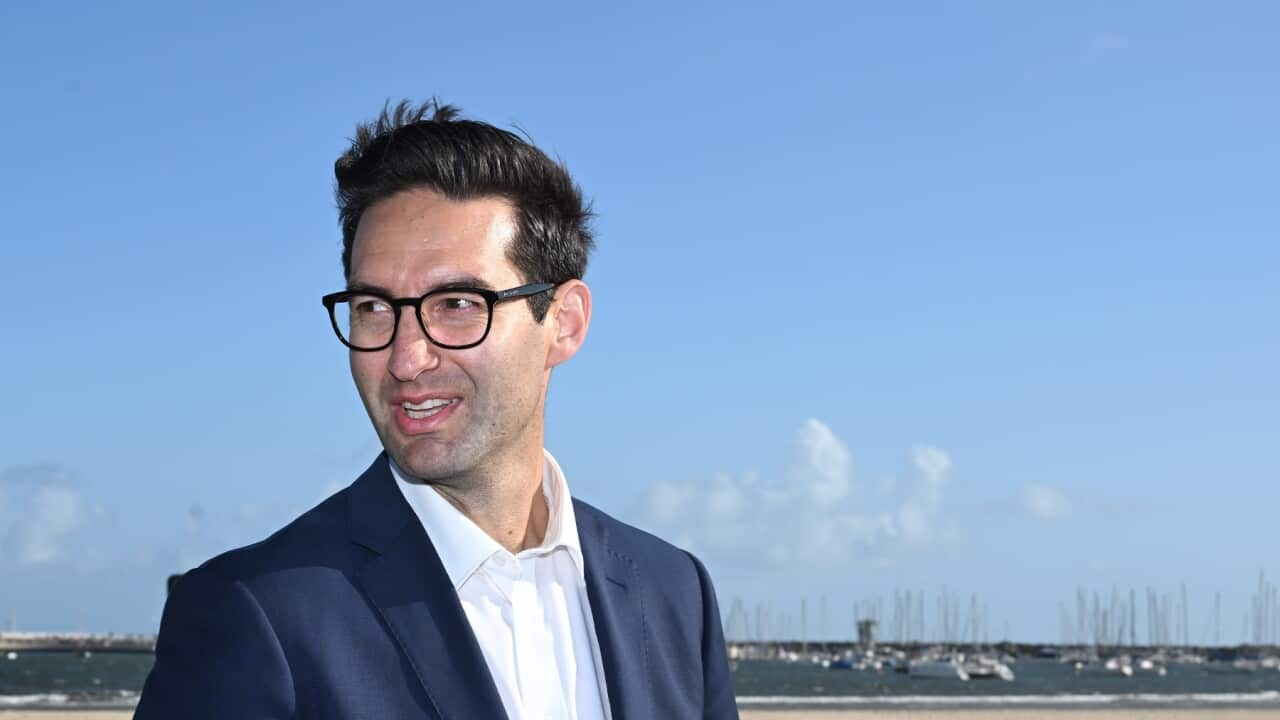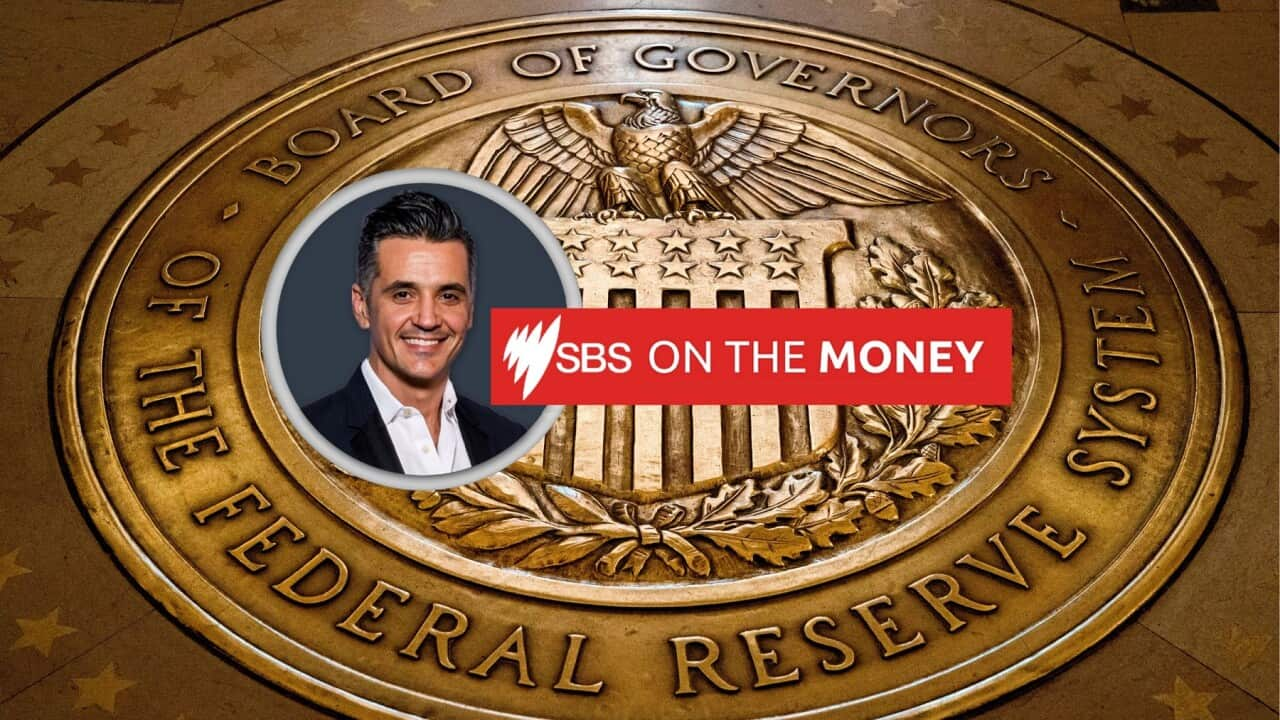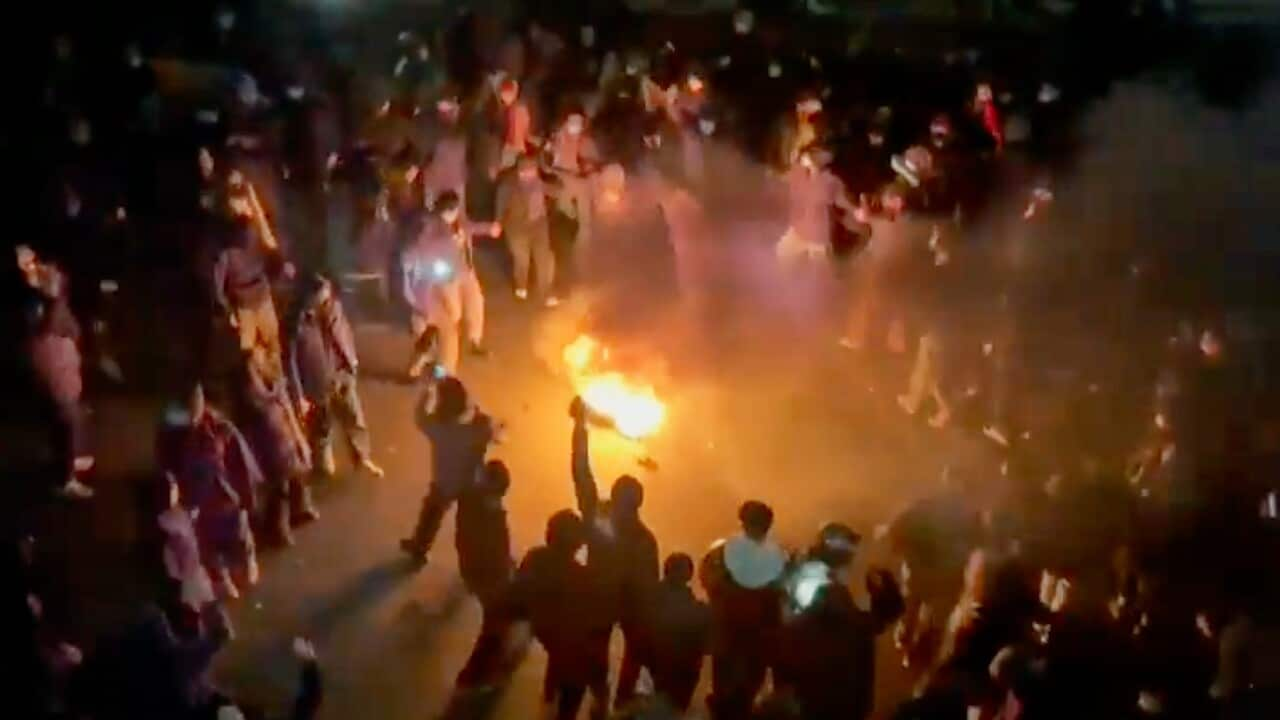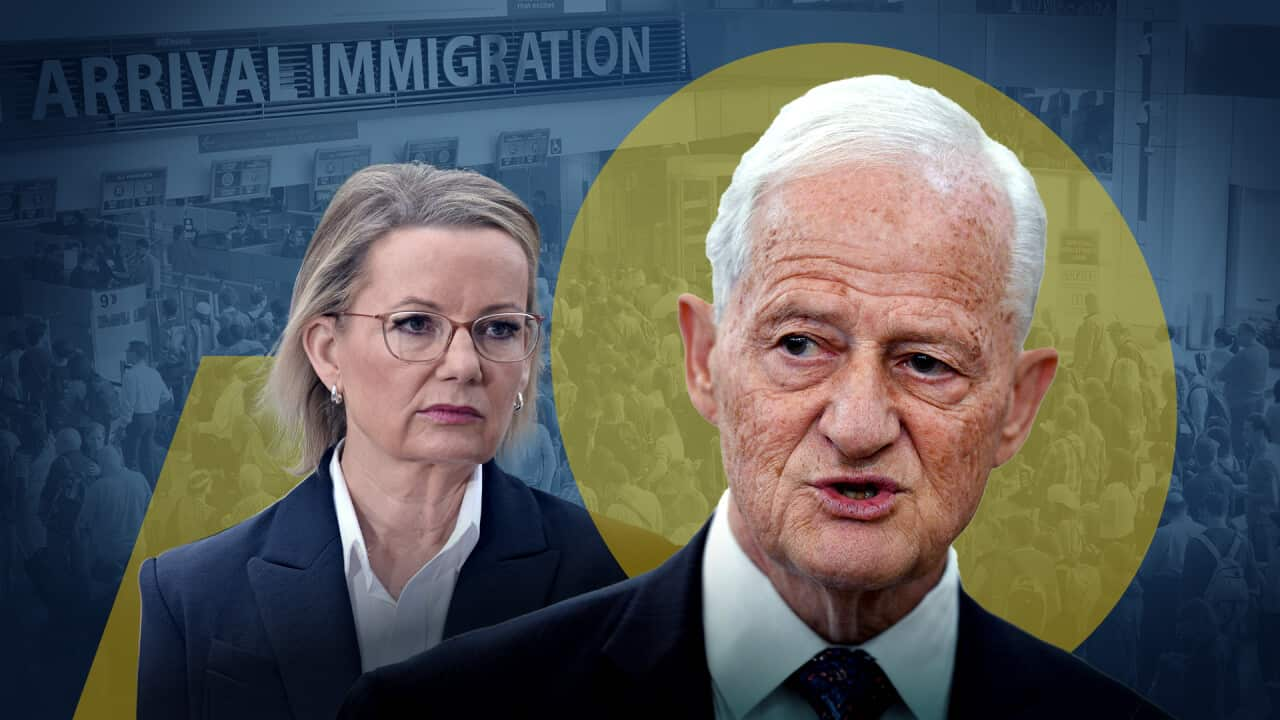TRANSCRIPT
Israel is facing renewed pressure to end its assault against Palestinian civilians, both at home and abroad.
US Secretary of State Antony Blinken is calling for a swift end to the conflict - but once again stopped short of demanding a ceasefire.
This comes off the back of his week-long visit to the Middle East, which included a trip to Israel.
"We want this war to end as soon as possible. There's been far too much loss of life, far too much suffering. But it's vital that Israel achieve its very legitimate objectives - of ensuring that October 7th can never happen again."
Mr Blinken pointed to the exponential death toll from Israel's attacks on Gaza .
More than 23,200 Palestinians killed since the start of the conflict in October, according to the Health Ministry in Hamas-run Gaza.
In his meeting with Israeli leaders, including Prime Minister Benjamin Netanyahu, Mr Blinken stressed the importance of Israel working with Palestinian leaders, including in the creation of a Palestinian state.
He also acknowledged the difficulties of confronting Hamas - responsible for taking 240 hostages and killing more than 1200 Israelis in their October 7 attack.
"We know that facing an enemy that embeds itself among civilians, who hides in and fires from schools, from hospitals makes this incredibly challenging. But the daily toll on civilians in Gaza, particularly on children, is far too high."
Mr Blinken's comments come as the war continues to rage on in Gaza, and amid fears of the most intense hostilities between Hezbollah and Israel in 17 years.
The Iran-backed group based in Lebanon hit an Israeli army base on Tuesday, saying they did not want to expand the war but that the attack was in response to recent Israeli assassinations in Lebanon.
Israel said it killed the southern Lebanon commander of Hezbollah's aerial unit in an air strike on Tuesday, a claim Hezbollah denies.
Meanwhile, the UN says some 85 per cent of Gaza's population have been displaced - and it says more than 37,000 structures destroyed or damaged in the war so far.
Israel says it is shifting from a full-blown military assault to more targeted warfare in northern Gaza, while maintaining intensive combat in southern areas.
But calls for a ceasefire persist - including from the leader of the Palestinian envoy to the United Nations, Riyad Mansour.
"We always welcome any possibility of any outcome that gets us closer to the ceasefire. This is our compass. Everything we do, it has to lead us in the direction of a ceasefire. The obstacle is in the Security Council. We need to find a solution to that obstacle and to remove it from the path so that the state of Palestine assumes its rightful place as a member state of the United Nations."
This is echoed by a humanitarian organisation in Australia, who are also urging the government to publicly support South Africa's genocide case against Israel.
South Africa brought their application to the International Court of Justice at the end of December, declaring Israel was in breach of its obligations under the 1948 Genocide Convention due to its offensive in Gaza.
The letter from the Australian Centre for International Justice details conditions in Gaza and provides evidence of "genocidal intent" expressed by Israel's top politicians, including Prime Minister Benjamin Netanyahu.
In their submission, the Australian Centre for International Justice says:
"In the thirteen weeks since Israel began its military operations against Gaza, it has killed more than 22,000 people, 70 per cent of whom are women and children. Gaza’s 2.3 million people have been subject to one of the most intense aerial bombardment campaigns in history, with no area in Gaza safe... The UN Secretary-General has warned that 'the people of Gaza have reached a breaking point of deprivation and despair. This must end.' In light of the unfolding atrocities in Gaza, we welcome South Africa’s intervention at the ICJ and believe it deserves Australia’s full support, as a State Party to the Genocide Convention."
Australia is yet to take a stance, despite calling for a sustainable ceasefire in the Gaza strip in a joint statement with New Zealand and Canada in December.
Israel has condemned the accusation - with Israeli president Isaac Herzog saying "there is nothing more atrocious and preposterous".
US authorities are also opposed to the case, with Secretary of State Mr Blinken describing it as "meritless".
"We believe the submission against Israel to the International Court of Justice distracts the world from all of these important efforts. And moreover, the charge of genocide is meritless. It's particularly galling given that those who are attacking Israel, Hamas, Hezbollah, the Houthis, as well as their supporter in Iran, continue to openly call for the annihilation of Israel and the mass murder of Jews."
The hearings for the case will take place this week on January 11 and 12, with both South Africa and Israel allocated two hours on separate days to make their case for or against emergency measures.













